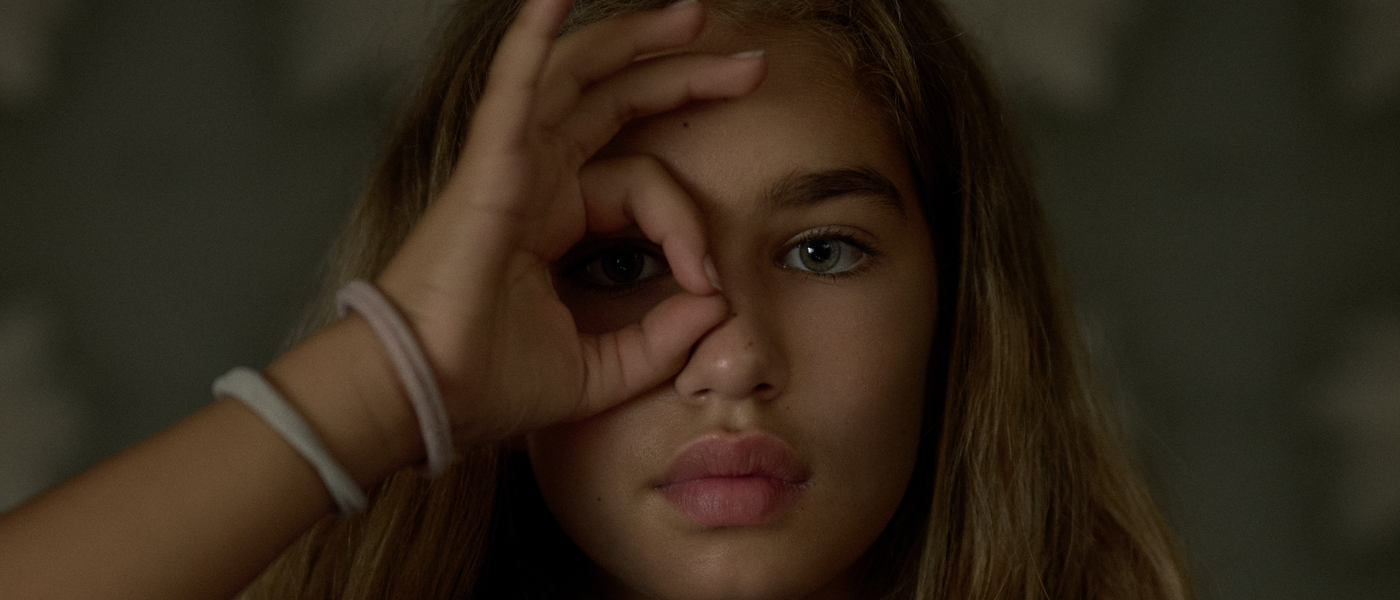Interview with Lili Koss, Eraserhead in a Knitted Shopping Bag director
by Esther Brejon

by Esther Brejon
For her first short film, Lili Koss takes us to 1990s Bulgaria, into a world without adults, where children grow up far from the innocence we might expect. In industrial landscapes, bathed in the glow of summer, a young girl’s search for a VHS tape of Eraserhead takes on the appearance of a cinephile and existential quest, as if drawn to David Lynch’s dark light, to whom the director pays a moving tribute.
Interview with Lili Koss
How much autobiography is there in your film ?
There is a lot of autobiography in terms of cinephilia because when I was growing up, we were watching three cassettes a day. The scenario of this industrial city is also autobiographical because I grew up in a place where factories were left behind after the fall of communism and it was very rusty, dusty and post-apocalyptic.
Your film is, of course, a tribute to David Lynch. What role does he play in your career as a director ?
A huge one ! His films can't leave you indifferent, the unease they provoke and the way that they force you to connect with yourself and your subconscious is, to me, the ultimate purpose of cinema. Eraserhead is Lynch’s first film and, in my opinion, one of his most courageous works. I feel deeply connected to him as an author and to his creative process – the curiosity and admiration that come with bringing an idea to life and staying true to it through every emotion along the way. From theory to filmmaking, I believe we’re all drawn to this – and for me, the sense of urgency that emerges in the process becomes almost physical.
How did you decide to include footage from David Lynch's Eraserhead in the film ?
From a technical point of view, we aimed to preserve the authenticity of the environment and era we’re working in, and to filter everything through the perspective of 12-year-old Ro and her own journey. Later on, we merged these visuals with references from Eraserhead. Lynch said that this was his most important film and he wanted us to show him a cut so that he could make sure that our intent is what we actually put on screen. We’ve got his blessing to use Eraserhead and it's a shame that this year took him from us and that he won't be able to see the film on the silver screen.
You show some harshness in the story of this young girl, who’s growing up in a cruel world. Why ?
Not all childhoods are filled with joy and candy, endless games, and freedom – not today, and not back then either. The 90s were brutal times. The economy was crushed, the inflation was at 1 000% , and many families were thrown into survival mode. In working-class households – like the one I come from – parents often had to take on two jobs just to make ends meet. That left children to raise themselves, in a way. We had to shape our own worlds, often alone. But what I hope we managed to capture is that, even within that reality, kids still found a way to see the world through their own colourful and hopeful lens.